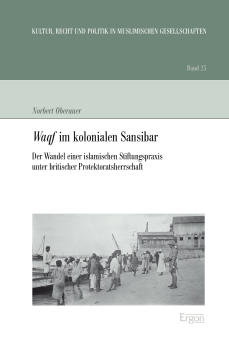Waqf in Colonial Zanzibar

In many premodern Islamic societies, religious endowments were a central element of socio-economic structure. Endowment practice typically reflected notions of social order: Rulers and elites used endowments to fulfil what they considered their obligation towards social welfare, but also to create dependency, to represent power and to foster bonds of solidarity within kinship and occupational groups. It is precisely for this quality of reflecting and reproducing notions of social order that endowments became a central point of conflict under colonial rule. British officials profoundly disagreed with the traditional ways of administering endowed resources.
At its heart, this conflict was a clash of opposing views about how socio-economic responsibilities should be allocated within society and which obligations the state, families and other institutions should assume in order to safeguard social welfare. In the Sultanate of Zanzibar, this conflict ended in a massive colonial intervention which profoundly changed the predominant patterns of local endowment practice. The study presents a detailed analysis of this transformation, based on extensive research of archival sources.
Literature: Oberauer, Norbert: Waqf im kolonialen Sansibar. Der Wandel einer islamischen Stiftungspraxis unter britischer Protektoratsherrschaft (Kultur, Recht und Politik in muslimischen Gesellschaften, vol. 25), Würzburg: Ergon 2012.

